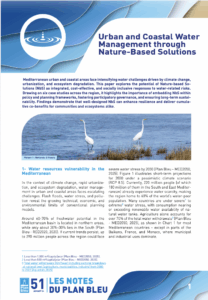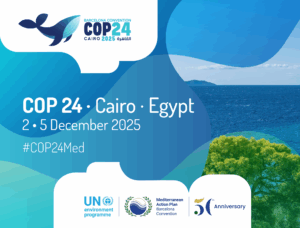
- Plan Bleu
Plan Bleu's missions
Make the Mediterranean a cooperation area for sustainable development
- themes
- projects
- Ressources
- publications
Last publications
- Events
In the news
Last events
- Plan Bleu
Plan Bleu's missions
Make the Mediterranean a cooperation area for sustainable development

Providing socioeconomics insights for the appropriate management of Mediterranean resources

Facilitate a science – political and civil society interface

Supporting the transition towards a green and blue economy

Design possible futures for sustainable development

Observer of the environment and development to inform governments and the general public
- themes
- projects
- Ressources
- publications
Last publications
- Events
In the news
Last events

Simplified Peer Review Mechanism (SIMPEER) of National Strategies for Sustainable Development
The project
The SIMPEER project is implemented by Plan Bleu under the guidance of the UNEP/MAP-Barcelona Convention Secretariat and the MCSD Steering Committee.
Based on a voluntary principle and equal participation for involved Contracting Parties, the Simplified Peer Review Mechanism (SIMPEER) aims at fostering dialogue between Mediterranean countries for a mutual improvement and learning process on National Strategies for Sustainable Development (NSSDs).
In the framework of the Mediterranean Strategy for Sustainable Development 2016-2025 (MSSD 2016-2025), the SIMPEER was decided by the Contracting Parties of the Barcelona Convention during their 19th Ordinary Meeting (Athens, Greece, February 2016) as a framework for mutual learning and improvement from past experiences and other national approaches on sustainable development.
The SIMPEER seeks to establish within an agreed methodology the exchange of experiences, policies and good practices on implementing sustainable development at national level, as opposed to creating a scrutiny framework between reviewers and countries under review. This peer review mechanism also contributes to the ownership, implementation and monitoring of the MSSD 2016-2025.
It represents an important tool to enable NSSDs review in line with the MSSD 2016-2025 and as a contribution to the global Agenda 2030 and its Sustainable Development Goals (SDGs) specifications.
It is performed in three main phases:
- Preparatory phase with an analysis of existing peer review mechanisms and a desktop analysis of background – legal and strategic – documents provided by volunteer Contracting Parties. Main outputs of this phase are a draft national factsheet and report.
- Design of the SIMPEER with a test at national level: it is the consultation phase during which the project team carry out a mission to the volunteer country to meet a range of national policymakers and other stakeholders involved in the implementation of the NSSD. This phase lead to the development of two major reports: the methodological report describing the SIMPEER process and the national report to be submitted to peer countries for consideration during the peer review meeting.
- Review phase is the core of the process: national reports elaborated in the previous phases are disseminated among the involved countries, they will constitute the background documents of the peer review meeting.
The three phases presented above are complemented by a dissemination phase of outputs, both at national and regional levels, to allow all Contracting Parties and national stakeholders, as well as other partners, to benefit from the results and lessons learnt.
In the 2016-2017 biennium, the SIMPEER involved three Contracting Parties which expressed and confirmed their interest to participate to the pilot test: France, Montenegro, and Morocco.
The three volunteer countries for the second SIMPEER 2018-2019 exercise are Albania, Egypt and Tunisia.
The 2018-2019 SIMPEER peer review meeting was held on November 19 and 20, 2019 in Marseille, gathering the countries participating in this exercise, Albania and Tunisia, and the countries participating in the previous exercise, France and Morocco (Egypt and Montenegro could not take part in this meeting).
Publications
events
News
Subscribe to the newsletter
Subscribe to Plan Bleu’s newsletter to stay updated



-
Plan Bleu
Tour la Marseillaise
2 bis, Boulevard Euroméditerranée
Quai d'Arenc
13002 Marseille - France - [email protected]
- +33 (0)6 43 08 20 23








